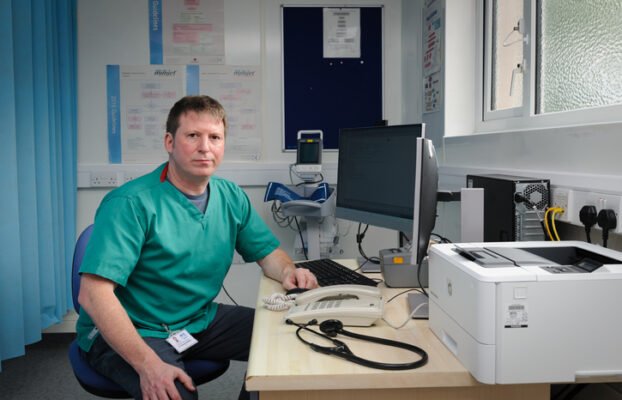Compact large language models for title and abstract screening in systematic reviews: An assessment of feasibility, accuracy, and workload reduction.
February 4, 2026Compact LLMs enhance systematic review efficiency: 100% sensitivity, low precision, and significant workload savings. 📊🤖
Patients Can Enroll in Cancer Trials Through NHS App
February 4, 2026NHS App now allows patients to enroll in cancer trials. This aims to improve treatment access and outcomes. 📱🎗️
Scottish GPs Highlight Need for Improved IT Systems
February 4, 2026Scottish GPs report inadequate IT systems, impacting patient care. RCGP urges government to prioritize modern technology for efficiency. 💻🩺
Diagnostic performance of convolutional neural network-based AI in detecting oral squamous cell carcinoma: a meta-analysis.
February 4, 2026AI in Oral Cancer Detection: CNNs show 94% sensitivity & specificity! 📊 High diagnostic potential, but more studies needed. 🦷
Use of Automation Technologies and Data Mining in Speech Recognition for Autism.
February 3, 2026Automation in ASD Speech Recognition: Enhancing Early Detection with AI Tools 🤖📊
Bridging machine learning and clinical practice: a multicentre nomogram for 90-day graft failure risk stratification in heart transplantation.
February 3, 2026Machine learning enhances heart transplant outcomes: 90-day graft failure risk stratification tool shows AUC 0.67 📊❤️
Future trends and challenges in occupational therapy: Insights from a Delphi study.
February 3, 2026Future trends in occupational therapy: 36 experts highlight tech integration, digital literacy, and ethical AI concerns. 📈🧠
Classification of angioedema types using decision tree modeling.
February 2, 2026Machine learning enhances angioedema diagnosis, achieving 94% accuracy for hereditary types. 🤖💉
Northamptonshire’s Shared Care Record Project Expected to Save Over £1 Million
February 2, 2026Northamptonshire's shared care record project aims to save over £1 million by improving care coordination and access to information. 💰📊









